Participants
Speakers
Dudley Andrew – Yale University
Dudley Andrew directed over thirty dissertations at the University of Iowa before moving to Yale in 2000 where he is the R. Selden Rose Professor of Film and Comparative Literature and serves as Director of Graduate Studies in the Film Studies Program. His areas of research include World Cinema (special attention to West Africa, France, East Asia, Ireland) Aesthetics (theories of the image, Film among the arts) and French cinema and culture. He has published The Major Film Theories, Concepts of Film Theory, and Andre Bazin, all with Oxford U Press. Another set of books explore key films and filmmakers: Film in the Aura of Art, a source book on Mizoguchi , a presentation of Breathless, and a “BFI classic” on Mizoguchi’s Sansho Dayu. His most ambitious works deal with France in the 1930s: Mists of Regret: Culture and Sensibility in Classic French Film (Princeton, 1995) and Popular Front Paris and the Poetics of Culture, co-authored with Steven Ungar (Harvard, 2005). He has edited an anthology from Texas, The Image in Dispute (1997), has programmed films for The Guggenheim museum, and served as a film festival judge. He is the recipient of the Guggenheim and several NEH fellowships and was named Chevalier – later Officier – de l’ordre des arts et des lettres by the French Ministry of Culture and Communication. In 2006 he was inducted into the America Academy of Arts and Sciences. explore key films and filmmakers: Film in the Aura of Art, a source book on Mizoguchi , a presentation of Breathless, and a “BFI classic” on Mizoguchi’s Sansho Dayu. His most ambitious works deal with France in the 1930s: Mists of Regret: Culture and Sensibility in Classic French Film (Princeton, 1995) and Popular Front Paris and the Poetics of Culture, co-authored with Steven Ungar (Harvard, 2005). He has edited an anthology from Texas, The Image in Dispute (1997), has programmed films for The Guggenheim museum, and served as a film festival judge. He is the recipient of the Guggenheim and several NEH fellowships and was named Chevalier – later Officier – de l’ordre des arts et des lettres by the French Ministry of Culture and Communication. In 2006 he was inducted into the America Academy of Arts and Sciences.
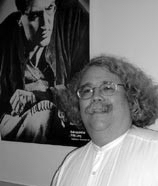
Tom Gunning – University of Chicago
Tom Gunning works on problems of film style and interpretation, film history and film culture. His published work (approximately one hundred publications) has concentrated on early cinema (from its origins to WWI) as well as on the culture of modernity from which cinema arose (relating it to still photography, stage melodrama, magic lantern shows, as well as wider cultural concerns such as the tracking of criminals, the World Expositions, and Spiritualism). His concept of the “cinema of attractions” has tried to relate the development of cinema to forces other than storytelling, such as new experiences of space and time in modernity, and an emerging modern visual culture. His book D.W. Griffith and the Origins of American Narrative Film (1991) traces the ways film style interacted with new economic structures in the early American film industry and with new tasks of storytelling. His book Fritz Lang: Allegories of Vision and Modernity (2000) deals with the systematic nature of the director's oeuvre and the processes of interpretation. He has written on the Avant-Garde film, both in its European pre-World War I manifestations and the American Avant-Garde film up to the present day. He has also written on genre in Hollywood cinema and on the relation between cinema and technology. The issues of film culture, the historical factors of exhibition and criticism and spectator's experience throughout film history are recurrent themes in his work.
Laura Mulvey – Birbeck University of London
Laura Mulvey is one of the most influential voices in contemporary film theory. Her 1975 essay “Visual Pleasure and Narrative Cinema” remains a cornerstone of feminist film theory, and her current work, in particular Death 24x a Second: Stillness and the Moving Image (2006), examines the ways in which even ubiquitous home video technologies, such as the
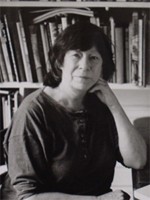 DVD player, can transform spectatorial pleasure from the voyeuristic to the fetishistic. Her other current interests include theories of technology and aspects of technological change in film and television, the aesthetics of stillness in the moving image, the “new woman” and the cinema in the late 1920s, and melodrama and world cinema. She has recently contributed chapters to several books, including “Birdsong” in Sutapa Biswas (2004), “Death Drives” in Past and Future Hitchcock (2004), “Uncertainty and Reality: Inorganic Bodies,” Videodreams: Between the Cinematic and the Theatrical (2003) and “Then and Now: Cinema as History in the Light of New Media and New Technologies,” The New Brazilian Cinema (2003). DVD player, can transform spectatorial pleasure from the voyeuristic to the fetishistic. Her other current interests include theories of technology and aspects of technological change in film and television, the aesthetics of stillness in the moving image, the “new woman” and the cinema in the late 1920s, and melodrama and world cinema. She has recently contributed chapters to several books, including “Birdsong” in Sutapa Biswas (2004), “Death Drives” in Past and Future Hitchcock (2004), “Uncertainty and Reality: Inorganic Bodies,” Videodreams: Between the Cinematic and the Theatrical (2003) and “Then and Now: Cinema as History in the Light of New Media and New Technologies,” The New Brazilian Cinema (2003).
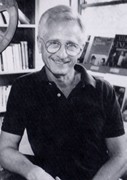
James Naremore – Indiana University
James Naremore is Chancellors’ Professor Emeritus in Communication and Culture, English, and Comparative Literature at Indiana University. Naremore’s research deals with classic Hollywood cinema and modernist literature and is especially concerned with questions of style, cultural politics, and ideology. He has written books and essays on a wide variety of twentieth-century artists, including Virginia Woolf, the Imagist poets, Orson Welles, and Alfred Hitchcock, and has published extensively on such general topics as film adaptation, film authorship, film acting, and film genre. A former Guggenheim Fellow, he is editor of Film Adaptation (2000) and the Contemporary Film Directors series of books, and is co-editor (with Patrick Brantlinger) of Modernity and Mass Culture (1991). He is also the author of The Magic World of Orson Welles (1979), Acting in the Cinema (1987), The Films of Vincente Minnelli (1993), and More than Night: Film Noir in its Contexts (1999), which was awarded the Kraszna-Krausz Moving Image Book Award in 2000. His most recent book, On Kubrick, will soon be published by the British Film Institute.
Respondents
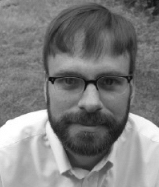
Jonathan Loucks
Jonathan Loucks is a writer, teacher, and musician. is rock criticism has appeared in Kitchen Sink and Fabula magazines, and his poems have appeared in The New Yinzer and Pittsburgh Post-Gazette. Jonathan spent several years living in San Francisco, where he worked as an advertising copywriter in a building with no windows. He now calls Pittsburgh home and plays guitar for the noise pop band Workshop.
Colin MacCabe
Colin MacCabe is distinguished professor of English and Film at the University of Pittsburgh and professor of English and Humanities
at Birkbeck, University of London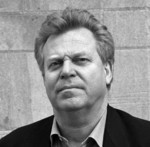 . He edits Critical Quarterly and is the author of several essays and books, including James Joyce and the Revolution of the Word (1979), the BFI Film Classic Performance (1998), The Eloquence of the Vulgar (1999), and Godard: A Portrait of the Artist at 70 (2004). His latest books, forthcoming, are a monograph on T.S. Eliot, and an examination of Neil Jordan’s 1997 film adaptation of Patrick McCabe’s 1992 novel The Butcher Boy. . He edits Critical Quarterly and is the author of several essays and books, including James Joyce and the Revolution of the Word (1979), the BFI Film Classic Performance (1998), The Eloquence of the Vulgar (1999), and Godard: A Portrait of the Artist at 70 (2004). His latest books, forthcoming, are a monograph on T.S. Eliot, and an examination of Neil Jordan’s 1997 film adaptation of Patrick McCabe’s 1992 novel The Butcher Boy.
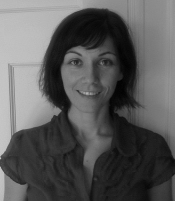
Stephanie McKnight
Stephanie McKnight earned her Master's degree in English Literature and Master's Certificate in Film Studies from the University of Pittsburgh. She plans to begin her PhD in film studies fall 2007, focusing on representations of gender and sexuality in Hollywood film and popular culture.
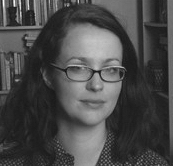 Kathleen Murray Kathleen Murray
Kathleen Murray is a PhD student at the University of Pittsburgh. She received her MA in media studies from The New School. Her scholarly interests include genre, spectatorship, and theories of play.

Alison Patterson
Alison Patterson is a doctoral student and teaching fellow in the Department of English. She received her Masters degree in Cinema Studies from Tisch School of the Arts, New York University. Her interests include politics and film, history of the film image and images of history, and cinematic surrealisms. Her current project, “(Un)Making Sense of History,” examines absurd cinematic representations of historical events.
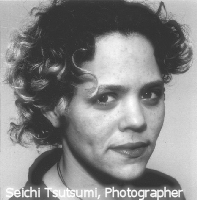 Shelagh Patterson Shelagh Patterson
Born and raised in Brooklyn, Shelagh Patterson is currently working towards her doctorate degree in English: Critical and Cultural Studies at the University of Pittsburgh. She received her MFA in Creative Writing, Poetry from the City University of New York Hunter College. She is a recipient of the Bronx Writers’ Center's Literary Arts Fellowship and Residency and a Cave Canem Fellow. Her poems have appeared in anthologies, newspapers, magazines, journals, experimental theater, and a feature film.

Rick Warner
Rick Warner is a PhD student at the University of Pittsburgh. His publications include “Shocking Histoire(s): Godard, Surrealism, and Historical Montage,” Quarterly Review of Film and Video, and “Smoke Gets in Your Eyes: Hou Hsiao-hsien’s Optics of Ephemerality,” Senses of Cinema. He holds a Master’s degree in Film Studies from Emory University.
Jarrell
D. Wright
 Jarrell D. Wright is originally from Beckley, West Virginia. He received his BA in Government with high honors from the College of William and Mary in 1989, and earned a JD from the same institution in 1992. He practiced law with the firm of Eckert, Seamans, Cherin & Mellott in Pittsburgh, Pennsylvania for ten years before returning to academia. He is currently pursuing a PhD in English at the University of Pittsburgh, where his primary research interests include theories of play in the poetry and culture of the English Renaissance. Jarrell D. Wright is originally from Beckley, West Virginia. He received his BA in Government with high honors from the College of William and Mary in 1989, and earned a JD from the same institution in 1992. He practiced law with the firm of Eckert, Seamans, Cherin & Mellott in Pittsburgh, Pennsylvania for ten years before returning to academia. He is currently pursuing a PhD in English at the University of Pittsburgh, where his primary research interests include theories of play in the poetry and culture of the English Renaissance.
|

